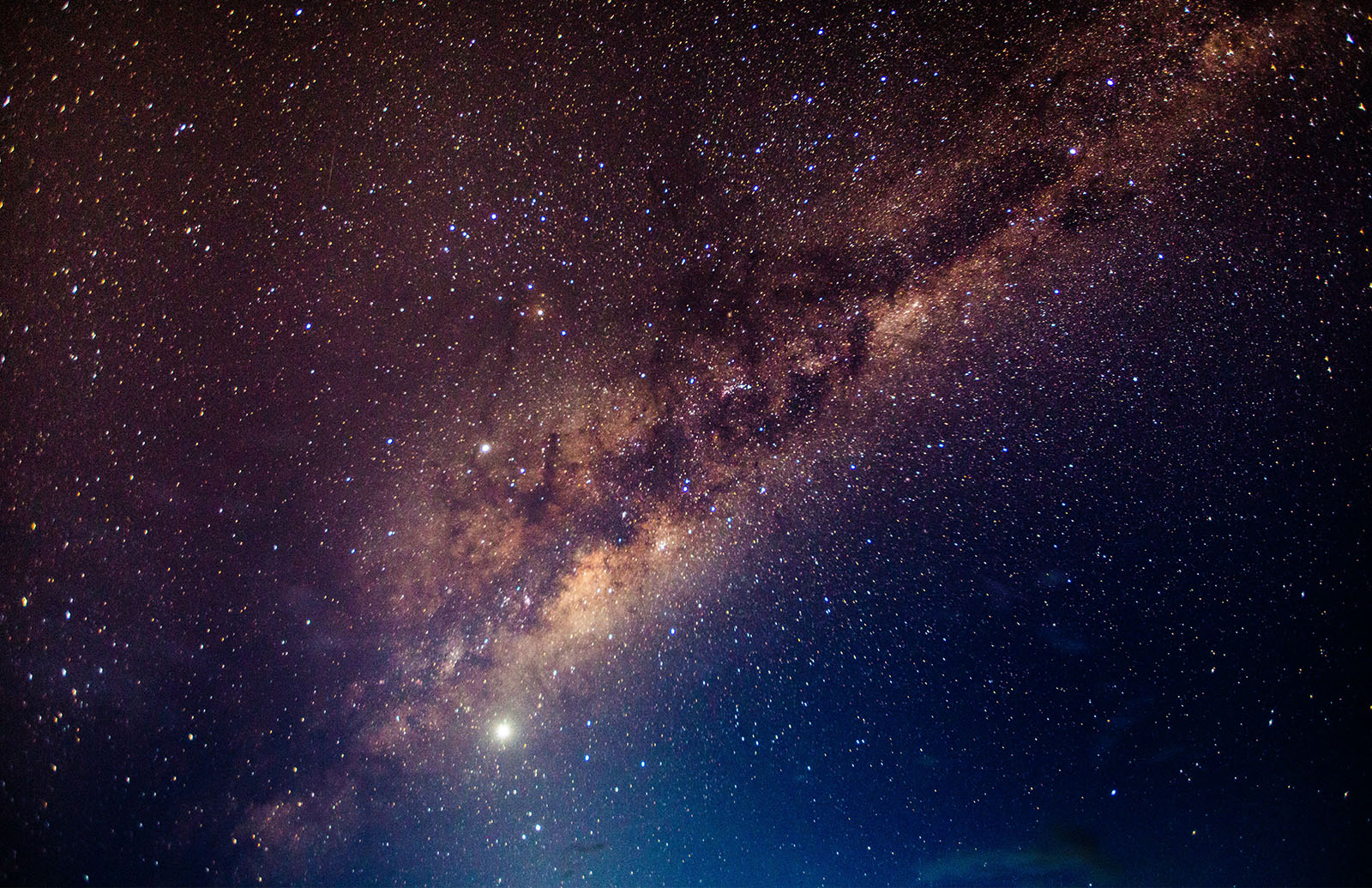A new study pre-published on the arXiv servers suggests that the Milky Way is missing almost half of its matter. Researchers used the Deep Synoptic Array (DSA), a set of 110 radio dishes in California, to measure the amount of matter in the Milky Way’s halo.
The DSA was designed specifically to spot fast radio bursts (FRBs), similar to the bursts we’ve seen coming from deep space. The DSA then uses those bursts to trace them back to their home galaxies. A nice side effect of this, though, is that they can also calculate the amount of matter between those galaxies and the detector, as they did here with the Milky Way.
To do this, they detect how much matter has absorbed the FRBs radiation. Think of it like shining a flashlight through the fog to determine just how thick it is. By doing this, the researchers were able to detect that the Milky Way’s matter stores are much lower than we expected them to be. In fact, there is 40 percent less matter in the Milky Way than there is in the universe.

It’s a surprising discovery, the researchers say, because we previously believed that the halos of galaxies like the Milky Way kept the same cosmic fraction of the baryonic matter. However, the Milky Way’s halo is only made up of about 9.6 percent baryonic matter compared to other parts of our universe.
It’s unclear exactly why the Milky Way has less matter than the rest of the universe, but it does continue to point out just how unique our galaxy is compared to others out there. As we dig deeper into the mysteries of the early universe, it’s likely we may find even more surprising information about our galaxy, and even our universe.
This also isn’t the only recent discovery we have made about the Milky Way. Scientists also recently discovered the ancient heart of the Milky Way.








